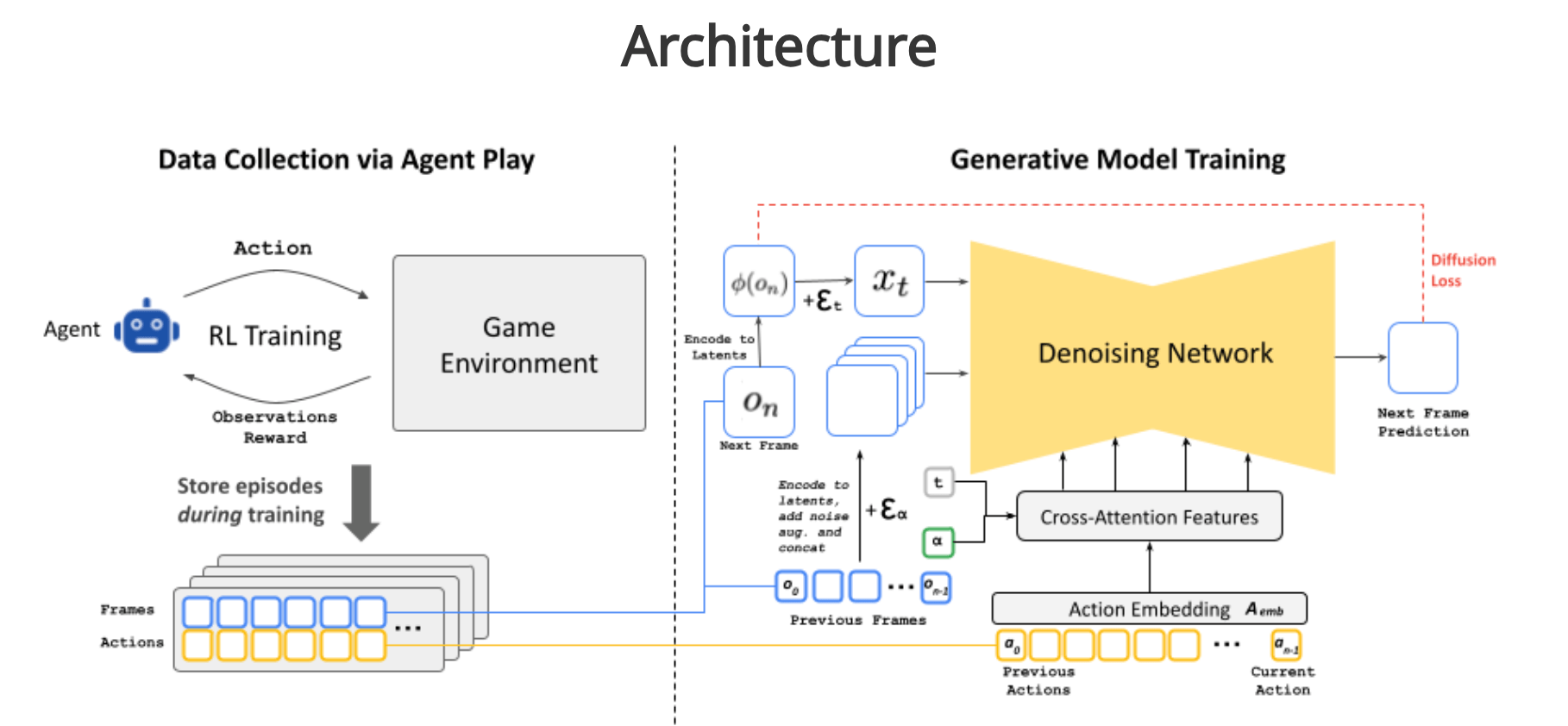GameNGen, a game engine based on neural models, has the potential to revolutionize the way video games are created and played. An innovative approach developed by Google Research and researchers at Tel Aviv University enables real-time interaction with complex game environments without relying on traditional game engines.
As the authors reported, GameNGen can simulate the classic game DOOM at over 20 frames per second, achieving image quality comparable to the original game.
The core of GameNGen’s functionality lies in its use of diffusion models, a type of generative AI that has become standard in media generation. The process begins with training a reinforcement learning (RL) agent to play the game, recording its actions and observations. This data is then used to train a diffusion model that predicts the next frame based on a sequence of past frames and actions. Using this method, the model can simulate complex game state updates, such as managing health and ammo, attacking enemies, and interacting with the environment over long trajectories.


GameNGen’s approach addresses the challenges of simulating interactive worlds that require conditioning on a stream of input actions available only during generation. The model achieves stable autoregressive generation over long sequences through the use of conditioning extensions, mitigating problems such as sample divergence that can arise in such simulations.
The future of gaming could be AI-generated
Looking ahead, this proof of concept points to several potential advances in the gaming industry. AI models like GameNGen could lead to the development of games that are generated rather than manually coded, similar to how images and videos are created by neural models today. This could make game development more accessible and cost-effective, allowing developers to design and modify games using text descriptions or example images rather than traditional programming.
Furthermore, the ability of AI models to simulate interactive environments in real-time could increase the realism and interactivity of games. As AI methodology evolves, more immersive and adaptive gaming experiences could be created, with NPCs exhibiting lifelike behaviors and environments responding dynamically to player actions. This could lead to richer narrative and more engaging gameplay as AI-driven games adapt to players’ individual preferences and skills.
Furthermore, integrating AI into game development could facilitate procedural content generation, allowing developers to create diverse and rich game worlds with less manual effort. This could lead to endless replay value and unique gaming experiences as AI models generate new levels, quests and challenges based on players’ interactions and preferences.
The future of AI in gaming also promises improved game analytics and player experience modeling. By leveraging AI’s predictive capabilities, developers could gain insights into player behavior and preferences, allowing them to better adjust game mechanics and difficulty levels in real time. This data-driven approach could lead to more personalized and engaging gaming experiences, as well as improved game performance and player retention.
While GameNGen is currently being demonstrated on DOOM, the developers plan to apply this technology to other games and interactive software systems as well, highlighting the potential for broader applications in the gaming industry. Ongoing research aims to refine the model’s capabilities, such as expanding its memory and improving its ability to handle more complex environments, to further improve the realism and interactivity of AI-generated games.

